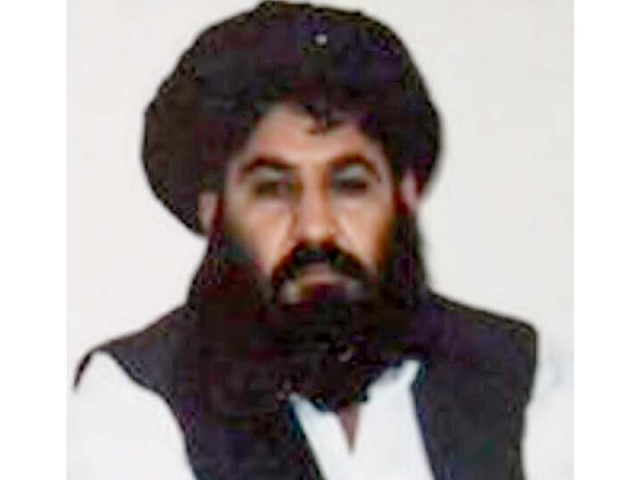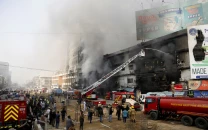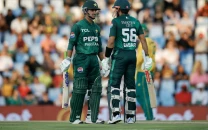Pall of uncertainty: Kabul-Taliban talks put off for now
Pakistan has yet to officially confirm the death of Mullah Omar

Mullah Akhtar Mansoor. PHOTO: FILE
The second round of talks between the Afghan government and the Taliban has been postponed, the Foreign Office said on Thursday, following the reported death of Mullah Omar.
A foreign ministry statement said the Afghan Taliban leadership had asked for the postponement "in view of the reports regarding the death of Mullah Omar and the resulting uncertainty".
Foreign Office spokesperson Qazi Khalilluah said Pakistan and other friendly countries voiced hope that the Taliban leadership will stay engaged in the process of peace talks in order to promote a lasting peace in Afghanistan.
"It is further hoped that those forces, which due to their mala fide intent wanted to undermine the peace talks, will not succeed in their designs," he added. Pakistan has yet to officially confirm the death of Mullah Omar, although the postponement of talks suggested the authorities here knew that the reports were credible.
At a weekly news briefing, the Foreign Office spokesperson said Pakistan was ascertaining facts about the speculation regarding the death of Mullah Omar. “We have seen the reports and trying to ascertain facts in this regard,” he added.
When his attention was drawn towards the claims by Afghan government that Mullah Omar died in a hospital in Karachi, Qazi replied: “I cannot further comment on the speculations.”
The postponement of talks is seen as a major blow to nascent peace process that renewed hopes of a possible political solution to over a decade-long conflict in Afghanistan.
The crucial talks were set to take place in the popular hill town resort of Murree, which is an hour’s drive from the capital today (Friday) where both sides were expected to discuss the possibility of a ceasefire by the Afghan Taliban.
It was the first formal and direct talks between the two sides and the process had the backing of all major players, including the US, China and Pakistan.
The news of Mullah Omar’s death seems to have caught everybody off guard as the US Special Representatives for Pakistan and Afghanistan had already arrived in the capital, as well as representatives of the Taliban to attend the talks.
Pakistan had been credited with bringing the Taliban to the negotiating table. However, the fate of future talks looks uncertain as it is not clear whether the new Taliban chief will have the same influence as Mullah Omar had over the insurgent group.
Published in The Express Tribune, July 31st, 2015.


















COMMENTS
Comments are moderated and generally will be posted if they are on-topic and not abusive.
For more information, please see our Comments FAQ